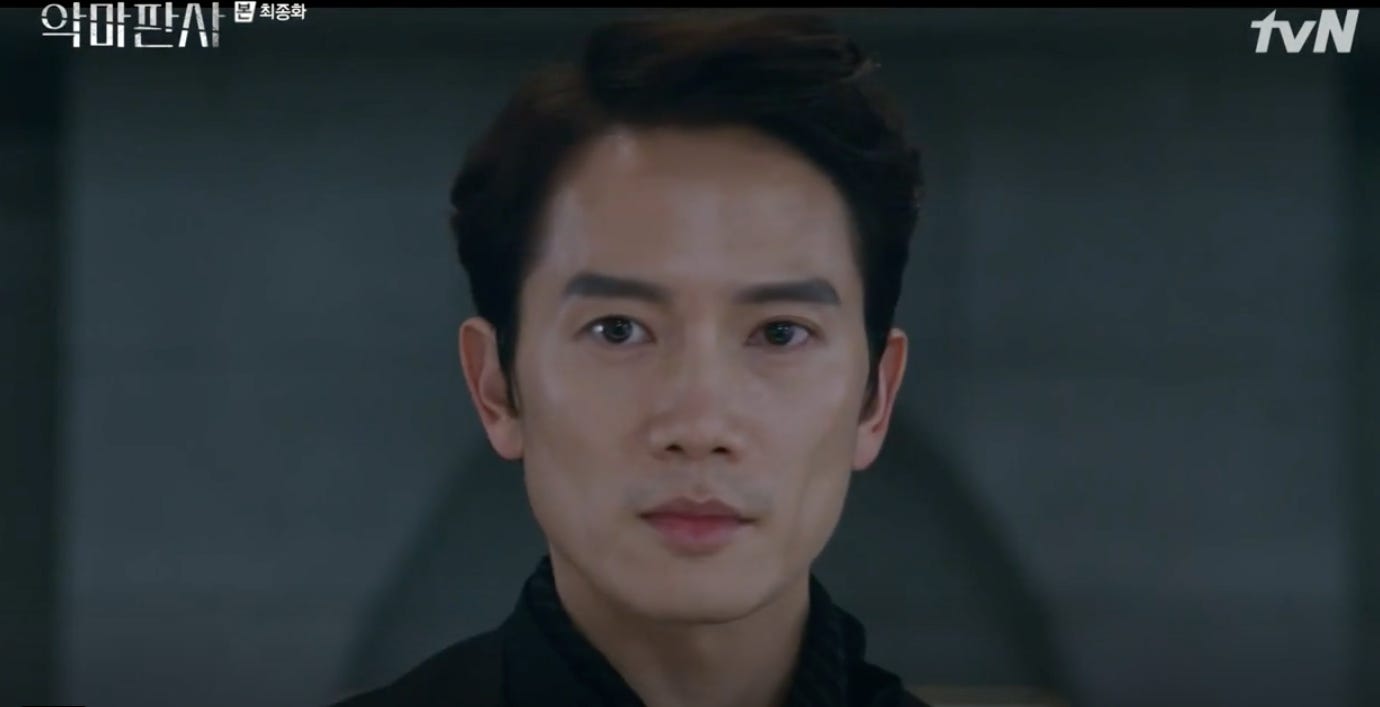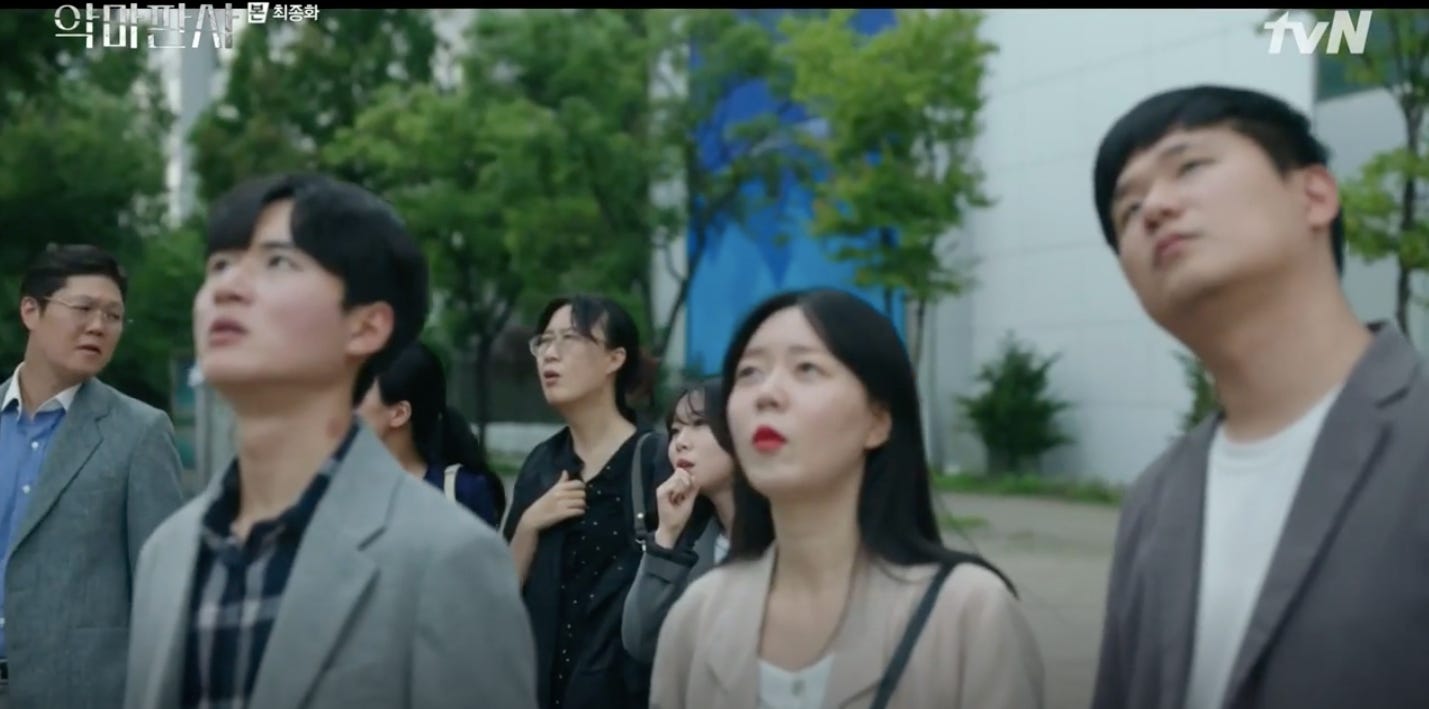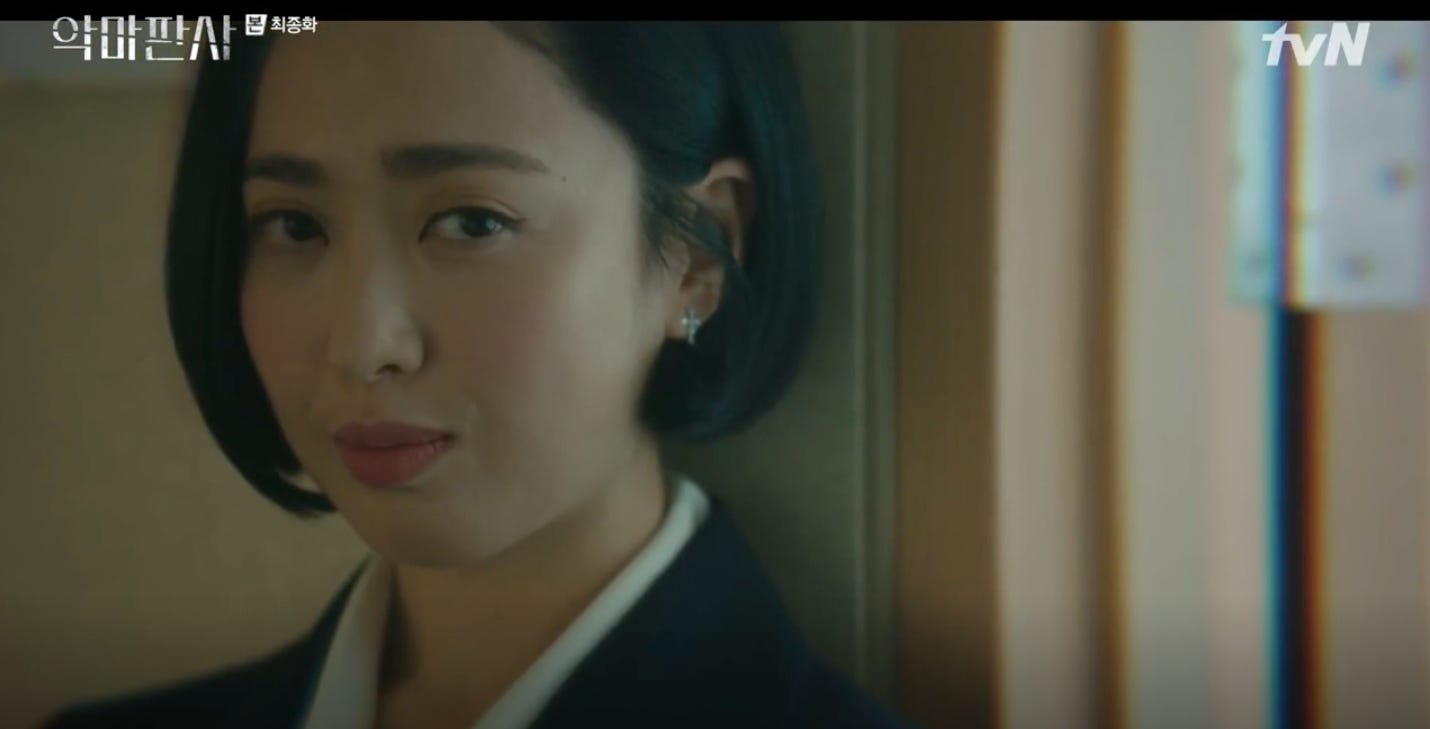The Devil Judge (2021) Final Comments and Review
Coming off the final act of this drama immediately took me to George Orwell’s great diatribe against totalitarianism — Animal Farm. In this classic allegory of the Bolshevik Revolution he charts the eventual disintegration of the ideals of the revolution through the gradual dismantling of the Seven Commandments of the hard worn bestial utopia. At the end of this dark tale, the last of these “commandments” — “All of animals are equal” has been revised to the point of unrecognition by the ruling porcines to read “All animals are equal but some animals are more equal than others.” The annals of history is proof of the reality that good intentions can turn hellish all-too quickly not only because of unintended consequences but because absolute power is too hot for mere mortals to wield.
Echoes of Orwell inevitably find their way to this Dark Knight inspired depiction of South Korean dystopianism that has striking relevance for our own tumultuous time. Social elites consumed by the enormous power divested on them bask in the glow of the political weaponry at their disposal and ensure its longevity by some failsafe mechanism to maintaining it. Until a worthy challenger emerges of course. Power and its ability to accumulate resources is intoxicating and few are able to resist its allure. Whatever the limitations of the show, it is at its core a persuasive examination of the perniciousness of evil. It won’t be to the taste of many and it will leave even the most willing viewer reeling at the sight of the wanton disregard for human life exemplified up and down the pyramid of corruption. “Some animals are more equal than others” is the view taken by those who possess near absolute power, who see themselves accountable to no one but themselves. They pay lip service to the rule of law and opportunistically deploy it for their own ends. In large part the citizenry is theirs to manipulate and exploited for gains too horrifying to contemplate.
It’s a confusing time for Kim Ga-on, a young idealistic judge who in true Biblical fashion, is installed as a Judas (and that is indeed what he is called in the narrative) to keep tabs on the anti-heroic and inscrutable Kang Yo-han who is the chief judge of the live court show. It isn’t immediately obvious that Yo-han is any kind of Christ figure and he would eschew any kind of attribution of the sort but there are some parallels. Yo-han, an illegitimate son brought up among the elites of his world and yet he finds himself at odds with them, his only civilizing influencing was his late brother Isaac. The hypocrisy of the elites, as he calls it, touches a nerve in a man who certainly makes no pretence to caring for common folk or justice. Or so he claims. And yet, the lengths to which he is willing to go to take down the cabal holding the levers of power is admirable and terrifying. He is South Korea’s Dark Judge that it didn’t know it was waiting for, using populism as his double-edge weapon of much destruction. His methods are unconventional to say the least and is calculated to make both defenders and critics squirm in their seats.
Unlike the Judas of the Gospels, Ga-on cares nothing for the thirty pieces of silver. And of course Judas was never the disciple Jesus loved the most so the parallels don’t go far. But the obsequious president, Heo Jung-se is barely literate even if he is quite capable of being devious. Ga-on is a willing stooge for this old professor Min Jung-ho now a justice of the supreme court because he is led to believe that Kang Yo-han is a menace. Min Jung-ho is an important father-figure that fears the anarchic force of nature that is Kang Yo-han. On the surface, Justice Min is a righteous symbol and upholder of the rule of law. He genuinely believes that the maverick judge is a threat to the system that he’s a part of. The live court show according to the indignant Justice Min makes mockery of the bedrock principles and condescends to the worst impulses of populism. The trouble with Justice Min of course is that his eye is fixated on Kang Yo-han to the detriment of all else. His beloved justice system has been demonstrably hijacked by corrupt politicians and vested interests but the Dark Judge seems to be his only agenda. His stance regarding Kang Yo-han means that he is malleable in the hands of someone who can speak his language and string him along. His misdiagnosis that Kang Yo-han is the problem ensures that his eyes aren’t looking where they should. When he furiously denounces Yo-han’s methods as barbarism, the irony is that the really terrible atrocity is happening elsewhere in plain sight against the most vulnerable in the land.
For the longest time I didn’t see much use for Soo-hyun, the lady cop whose only purpose in life seems to be Ga-on. Even her stated impetus for joining the force is to protect him from dangers near and far. Perhaps she is purely a romantic interest which might be okay if she wasn’t so adamant that Yo-han was a danger to Ga-on. But it seems that her role is a much more sinister one: to keep Ga-on confused until it’s time to unleash Judas. It’s been argued that she represents a goodness that’s out of step or almost non-existent in a world like this. She may well be the mechanism by which Ga-on doesn’t completely descend into the dark pit that has Yo-han captive. Whatever she means to Ga-on personally, in more cynical hands, however, she’s the means of whipping up confusion for the doubting Ga-on. She clouds his judgment and holds him back from the need to really get his hands dirty. Only when he is stripped of everything that cocoons him, does he truly perceive the magnitude of the evil that grips the country.
It may be the case that the live court show is a cynical piece of political theatre for a vindictive judge but in that dystopian world Kang Yo-han takes the power given to do a great deal of damage to the elites and hands it back to the people. It’s not hard to see how that’s an attractive proposition even to some of us who normally object vehemently to trial by media. The glossy even sterile aesthetics of the sets add to that uneasy feeling that the facade of prosperity hide dark undertones of malfeasance lurking just beneath the surface.
Right to the end, Kang Yo-han remains a controversial figure. No one would ever call him a good man and yet the case is made time and time again that he is the man needed for this descent into societal madness. Is he the saviour of South Korea? That may be a bridge too far but unmasking the Social Reform Foundation and ensuring the downfall of the elites are no mean feats.
Without a doubt Ji Sung is amazing in this. His natural showmanship brings credibility and likeability to a character with dark impulses. Equally good is Kim Min-jung as the clever and vicious Jung Sun-ah, his nemesis. They have an ill-fated childhood connection that can only lead to the destruction of the one or the other. I suppose we’re meant to feel pity for her tragic past but at one point a long time ago, she crossed a line from which there would be no return. Also impressive is 15-year-old Jeon Chae-eun as the prickly Elijah, Yo-han’s only living relative. Their relationship is a constant delight even while they bicker and misunderstand endlessly. She is a face to watch undoubtedly. This too is my first outing with Park Jin-young and he exudes a high degree of believability as a young idealist caught in a tug-of-war of emotions. The learning curve is steep for him who wrestles all the way to sort through the truth from the lies. Sadly I liked Park Gyu-young better in Sweet Home. Here her Soo-hyun is such a thankless role. A person out of place and out of time. A hindrance in most instances rather than a help.
In general the combination of villains work well for the larger story here. It isn’t just about the individuals in question having access to unlimited resources but also their respective contribution to the plotting and scheming, the shifting alliances which make sense in the context of the cat and mouse game between the devil judge and his devilish adversaries. In that regard it does much better than Vincenzo from earlier in the year.







